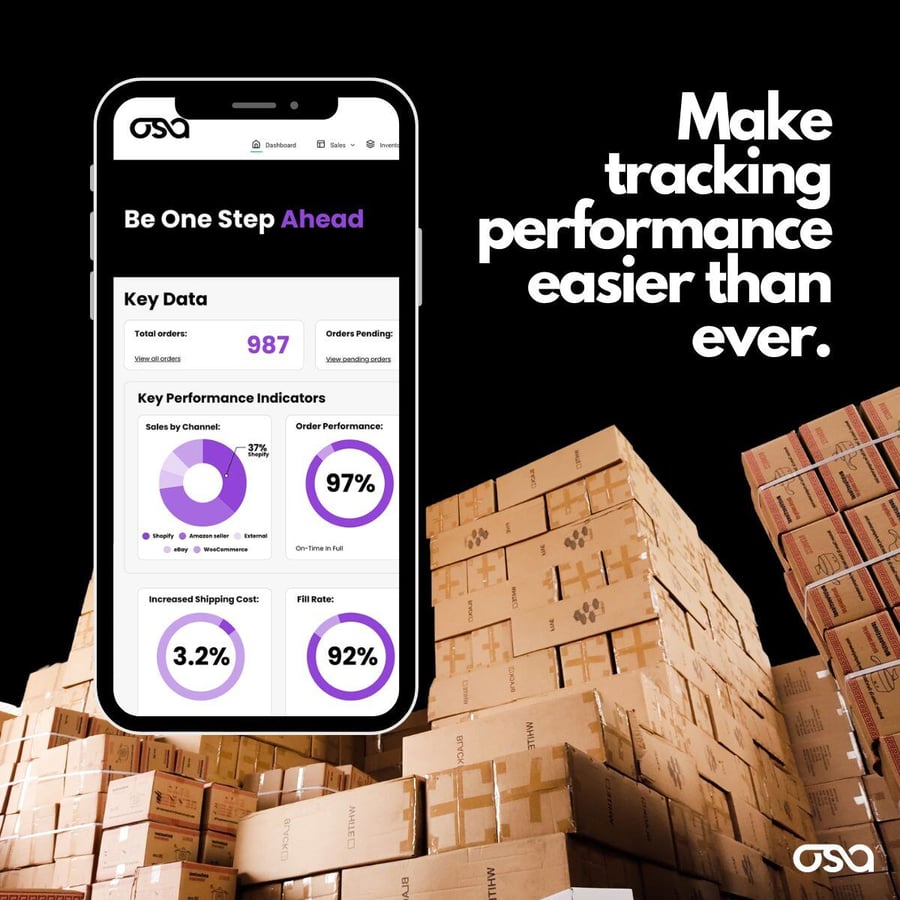
In the ever-evolving landscape of supply chain management, the concept of Fourth Party Logistics (4PL) has emerged as a strategic solution for businesses seeking comprehensive and streamlined logistics operations. But what exactly is 4PL, and how does it differ from traditional logistics models? Let's delve into the definition, role, and advantages of 4PL to understand its significance in modern supply chains.
What is Fourth Party Logistics (4PL)?
Fourth Party Logistics, often abbreviated as 4PL, refers to a model where a single entity, known as the fourth-party logistics provider, takes on the role of managing and optimizing the entire supply chain network on behalf of the client organization. Unlike traditional third-party logistics (3PL) providers who primarily focus on specific logistics functions such as transportation or warehousing, 4PL providers operate as strategic partners responsible for overseeing the end-to-end logistics processes, including planning, execution, and optimization.
The Role of a 4PL Provider
The role of a 4PL provider encompasses a wide range of responsibilities aimed at optimizing supply chain performance and driving operational efficiency. Some key functions of a 4PL provider include:
- Strategic Planning: Collaborating with client organizations to develop tailored supply chain strategies aligned with business objectives and market dynamics.
- Network Optimization: Designing and optimizing supply chain networks to enhance efficiency, reduce costs, and improve service levels.
- Supplier Management: Managing relationships with suppliers, vendors, and other third-party service providers to ensure seamless coordination and collaboration.
- Technology Integration: Leveraging advanced technologies such as supply chain management systems, data analytics, and automation tools to optimize logistics processes and enhance visibility.
- Performance Monitoring: Monitoring key performance indicators (KPIs) and metrics to track supply chain performance, identify areas for improvement, and drive continuous optimization.
Fourth Party Logistics (4PL) represents a strategic approach to supply chain management, offering advantages such as expertise, visibility, cost savings, and flexibility. However, it can pose challenges related to dependency. By carefully evaluating the unique needs and objectives of the supply chain organization, businesses can determine whether leveraging a 4PL provider is the right strategic choice to optimize their logistics operations and drive success in today's competitive marketplace.

When to Use 4PL: Leveraging Strategic Logistics Solutions
In the dynamic landscape of supply chain management, organizations are constantly seeking innovative solutions to optimize their logistics operations and drive business success. Fourth Party Logistics (4PL) has emerged as a strategic option for businesses looking to enhance efficiency, reduce costs, and gain a competitive edge in the marketplace. But when is the right time to leverage a 4PL provider? Let's explore three key scenarios where utilizing a 4PL becomes advantageous.
Cost Reduction
Cost reduction is a primary concern for businesses aiming to improve their bottom line and increase profitability. Leveraging a 4PL provider can help organizations achieve significant cost savings through various means:
- Economies of Scale: By consolidating operations, leveraging aggregated volumes, and negotiating favorable rates with suppliers and carriers, 4PL providers can achieve economies of scale, resulting in lower transportation, warehousing, and inventory costs.
- Optimized Resource Utilization: 4PL providers employ advanced technologies and best practices to optimize resource utilization, minimize waste, and reduce inefficiencies throughout the supply chain, leading to cost savings and improved operational performance.
- Process Efficiency: Streamlining logistics processes, automating repetitive tasks, and implementing lean practices enable 4PL providers to enhance process efficiency, reduce lead times, and eliminate unnecessary costs associated with manual interventions and errors.
Scale Your Business
As businesses grow and expand, they often face challenges related to scaling their logistics operations to meet increasing demand and market opportunities. Leveraging a 4PL provider can facilitate seamless scalability by:
- Flexible Solutions: 4PL providers offer flexible and scalable solutions that can adapt to changing business requirements, seasonal fluctuations, and market dynamics, allowing organizations to ramp up or down their logistics capabilities as needed without significant investments in infrastructure or resources.
- Global Reach: With their extensive network of partners, suppliers, and carriers, 4PL providers offer access to global markets, enabling businesses to expand their reach, enter new territories, and capitalize on growth opportunities without the complexities and risks associated with managing international logistics operations.
- Technology Integration: By leveraging advanced technologies and digital solutions, 4PL providers enable seamless integration of supply chain systems, processes, and data, facilitating efficient collaboration, communication, and decision-making across geographies and business units.
Focus on Core Competencies
For many organizations, logistics management may not be a core competency, diverting valuable resources and attention away from strategic priorities and business growth initiatives. Outsourcing logistics to a 4PL provider allows organizations to:
- Focus on Core Business Activities: By entrusting logistics management to a 4PL provider, organizations can focus their resources, expertise, and attention on core business activities, innovation, and value creation, driving competitive differentiation and market leadership.
- Access Specialized Expertise: 4PL providers bring specialized knowledge, skills, and experience to the table, allowing organizations to leverage industry best practices, innovative solutions, and market insights without investing in internal logistics capabilities.
- Risk Mitigation: By partnering with a reliable and experienced 4PL provider, organizations can mitigate risks associated with supply chain disruptions, market volatility, and regulatory compliance, ensuring continuity of operations and protecting their brand reputation.
Leveraging a 4PL provider can be advantageous for organizations seeking to reduce costs, scale their business, and focus on core competencies. By carefully evaluating their logistics needs, business objectives, and strategic priorities, organizations can determine the right time to engage a 4PL provider and unlock the benefits of strategic logistics solutions in today's competitive marketplace.

Navigating the 4PL Implementation Process: From Assessment to Performance Monitoring
Implementing a Fourth Party Logistics (4PL) solution requires careful planning, strategic alignment, and effective execution to realize its full potential in optimizing supply chain operations. Let's explore the step-by-step process of implementing a 4PL solution, from initial assessment to ongoing performance monitoring.
4PL Assessment
The first step in implementing a 4PL solution is conducting a comprehensive assessment of the organization's current supply chain capabilities, challenges, and objectives. This involves:
- Identifying Pain Points: Assessing existing logistics processes, identifying inefficiencies, bottlenecks, and areas for improvement.
- Defining Objectives: Clarifying the organization's goals and expectations from the 4PL partnership, such as cost reduction, service improvement, or scalability.
- Evaluating Readiness: Assessing the organization's readiness for change, including internal capabilities, resources, and cultural alignment.
Strategy Development
Based on the assessment findings, the next step involves developing a strategic plan for implementing the 4PL solution. This includes:
- Defining Scope: Clearly defining the scope of the 4PL engagement, including the services to be outsourced, geographical coverage, and expected outcomes.
- Setting Objectives: Establishing measurable objectives and key performance indicators (KPIs) to track the success of the 4PL implementation.
- Formulating Strategies: Developing strategies and action plans to address identified pain points, capitalize on opportunities, and achieve desired outcomes.
4PL Solution Design
With the strategy in place, the focus shifts to designing the 4PL solution. This involves:
- Partner Selection: Selecting a suitable 4PL provider based on factors such as expertise, capabilities, track record, and cultural fit.
- Solution Design: Collaborating with the chosen 4PL provider to design a customized solution that addresses the organization's specific needs and objectives.
- Technology Integration: Integrating supply chain systems, processes, and data to ensure seamless communication and collaboration between the organization and the 4PL provider.
Implementation of 4PL
Once the solution is designed, the implementation phase begins. This includes:
- Transition Planning: Developing a detailed transition plan to smoothly transfer responsibilities from internal teams to the 4PL provider.
- Training and Change Management: Providing training and support to internal stakeholders to ensure a smooth transition and foster buy-in for the new 4PL solution.
- Pilot Testing: Conducting pilot tests and simulations to validate the effectiveness of the 4PL solution and identify any potential issues or challenges.
Performance Monitoring
After the implementation is complete, ongoing performance monitoring and optimization are crucial. This involves:
- Continuous Improvement: Monitoring key performance metrics and KPIs to track the effectiveness of the 4PL solution and identify opportunities for improvement.
- Feedback and Review: Soliciting feedback from internal stakeholders and external partners to identify areas for refinement and enhancement.
- Adaptation and Flexibility: Remaining agile and adaptable to changing market conditions, customer needs, and business requirements, and adjusting the 4PL solution accordingly.
Implementing a Fourth Party Logistics (4PL) solution requires a systematic approach, from initial assessment and strategy development to design, implementation, and ongoing performance monitoring. By following these steps and collaborating closely with the chosen 4PL provider, organizations can optimize their supply chain operations, drive efficiency, and achieve their business objectives effectively.

Unlocking the Advantages of Fourth Party Logistics (4PL)
Fourth Party Logistics (4PL) has emerged as a strategic solution for businesses seeking to optimize their supply chain operations and drive competitive advantage in today's dynamic marketplace. Let's explore the key advantages of leveraging a 4PL solution across various aspects of logistics management.
Cost-Efficiency with a 4PL
One of the primary advantages of using a 4PL solution is cost-efficiency. By leveraging economies of scale, strategic partnerships, and innovative technologies, 4PL providers can achieve significant cost savings for their clients. Through centralized procurement, optimized routing, and streamlined operations, 4PL solutions help minimize transportation costs, warehousing expenses, and inventory carrying costs, ultimately improving the organization's bottom line.
4PL Integrated Services
4PL providers offer integrated services that span the entire supply chain, from procurement and inventory management to warehousing, transportation, and distribution. By consolidating multiple logistics functions under a single provider, organizations benefit from seamless coordination, standardized processes, and enhanced visibility across the entire supply chain network. Integrated services enable organizations to streamline operations, improve efficiency, and drive operational excellence.
Optimized 4PL Solutions
4PL solutions are tailored to meet the unique needs and objectives of each client, offering customized solutions that are optimized for efficiency, flexibility, and scalability. By leveraging advanced analytics, predictive modeling, and data-driven insights, 4PL providers help organizations identify opportunities for optimization, enhance decision-making, and drive continuous improvement throughout the supply chain. Whether it's optimizing routes, improving inventory management, or enhancing order fulfillment processes, 4PL solutions are designed to deliver tangible results and sustainable competitive advantage.
Holistic Oversight with a 4PL
Perhaps the most significant advantage of using a 4PL solution is the holistic oversight it provides over the entire supply chain ecosystem. 4PL providers act as strategic partners, offering comprehensive oversight, governance, and management of the entire logistics network. By taking a holistic approach to logistics management, 4PL providers ensure seamless coordination, collaboration, and alignment across all stakeholders, resulting in improved performance, enhanced visibility, and greater agility in responding to market dynamics and customer demands.
Leveraging a Fourth Party Logistics (4PL) solution offers numerous advantages, including cost-efficiency, integrated services, optimized solutions, and holistic oversight. By partnering with a trusted 4PL provider, organizations can streamline their logistics operations, drive efficiency, and gain a competitive edge in today's complex and dynamic business environment.
Why Select a 4PL: A Strategic Approach to Logistics Optimization
In the ever-evolving landscape of supply chain management, businesses are constantly seeking innovative solutions to enhance efficiency, drive growth, and stay ahead of the competition. Fourth Party Logistics (4PL) has emerged as a strategic option for organizations looking to optimize their logistics operations and unlock new opportunities for success. Let's delve into why selecting a 4PL provider can be advantageous across different stages of business growth and logistics maturity.
Approaching Enterprise Capacity
For large enterprises with complex supply chain networks and diverse logistical needs, partnering with a 4PL provider offers several benefits. 4PL providers bring expertise, experience, and industry best practices to the table, enabling enterprises to streamline operations, reduce costs, and drive operational excellence. By leveraging a 4PL solution, enterprises can optimize their supply chain processes, enhance visibility, and gain access to advanced technologies and global networks, allowing them to scale their operations and remain competitive in today's global marketplace.

Quickly Growing Logistics Business
Fast-growing businesses often face challenges related to scalability, resource constraints, and operational efficiency. Partnering with a 4PL provider can help alleviate these challenges by providing flexible, scalable, and customizable solutions tailored to meet the unique needs and objectives of growing organizations. By outsourcing logistics to a 4PL provider, fast-growing businesses can focus their resources and attention on core activities, innovation, and value creation, while leveraging the expertise and capabilities of a strategic logistics partner to support their growth trajectory.
Starting New In-House Logistics Operations
For businesses that are just starting out or have limited experience in managing in-house logistics operations, partnering with a 4PL provider can provide several advantages. 4PL providers offer comprehensive logistics solutions that encompass everything from procurement and inventory management to warehousing, transportation, and distribution. By outsourcing logistics to a 4PL provider, businesses can benefit from integrated services, standardized processes, and enhanced visibility across the entire supply chain, enabling them to optimize operations, reduce costs, and focus on their core business activities.
In conclusion, selecting a Fourth Party Logistics (4PL) provider offers numerous advantages for businesses across different stages of growth and logistics maturity. Whether approaching enterprise-level operations, experiencing rapid growth, or just starting out in-house logistics management, partnering with a 4PL provider can help organizations streamline operations, drive efficiency, and achieve their business objectives effectively and efficiently.



 Chelsea Mori
Chelsea Mori
